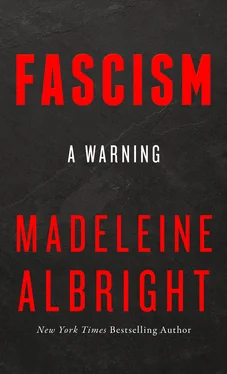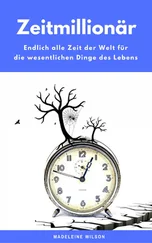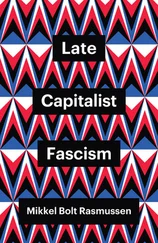1 ...6 7 8 10 11 12 ...16 The chancellor sat down so that the leaders of other parties could have their say. One by one, the Catholics, conservatives, and centrists fell in line and slipped Hitler’s bit between their teeth. Only the spokesman for the Social Democrats resisted, saying that to be defenseless did not mean to be without honor. Hitler, no longer the conciliator, stormed back to the rostrum. “I do not want your votes,” he screamed at the Socialists. “The star of Germany is in the ascendant, yours is about to disappear, your death knell has sounded.”
The legislators cast their votes, approving the Enabling Law by a wide margin. Within weeks, the compliant political parties were abolished and the Socialists put under arrest. The Third Reich had begun.
ADOLF HITLER WAS BORN ON APRIL 20, 1889, IN RURAL BRAUNAU, near the frontier between Austria and Bavaria. The son of a minor civil servant and an indulgent mother, he developed into a mediocre student, described by a teacher as “cantankerous, willful, arrogant, and … lazy.” Leaving school at sixteen, he embarked on what seemed an unpromising career, filling sketchbooks with architectural drawings, falling in love with Wagnerian opera, and applying without success to prestigious art schools. He spent his early twenties bedding down in a men’s hostel in Vienna, doing odd jobs, selling small paintings for modest sums, and reading prolifically. To an observer, the young man might have appeared unattractive, malnourished, ill-housed, underemployed, and without close friends; but in his own eyes Hitler was one of the elect, a superior being. His acquaintances found him full of unrealistic ideas, passionate about politics, and almost always livid about the folly of others. He scorned the laboring class for swallowing the bromides of Socialists and priests. He vilified the Reichstag for doing nothing in the face of dire threats to the nation, and he embraced theories—then widespread—about the evildoing and monstrous conspiracies of Jews.
Hitler, at twenty-five, welcomed the start of World War I. He enlisted in the Bavarian Army, saw combat at the outset, then, for four years, served as a courier between the regimental headquarters and the front lines. Unlike many soldiers, he did not complain about the war, which he considered an opportunity for the German people to show their mettle. In October 1916 he suffered a leg injury, but he returned to duty in the spring and was promoted to lance corporal. In the summer of 1918, he was exposed to a gas attack that temporarily blinded him.
His sight returned in November, but with it came the shock of Germany’s defeat. The government in Berlin had, until that final autumn, spoken only of victory and the rich rewards an end to the conflict would bring. Instead the silencing of the guns had been accompanied by the dishonor of surrender and so, also, the victors’ demand for blood money, the loss of territory, and the dissolution of the imperial regime. To Hitler and many other soldiers, this startling and humiliating outcome was not something they could accept. The war had reduced the ranks of German men between the ages of nineteen and twenty-two by a numbing 35 percent. The fighting and economic deprivation pulverized the nation. In the minds of enraged survivors, the cause of their disgrace had nothing to do with events on the battlefield: Germany had been betrayed, they told themselves, by a treasonous cabal of greedy bureaucrats, Bolsheviks, bankers, and Jews.
The abdication of Kaiser Wilhelm II led to the installation of multiparty democracy at an inauspicious time. The new Weimar Republic confronted a spiteful Europe, an indifferent America, and a wounded citizenry. As the government, it could not avoid responsibility for the harsh terms of the Versailles Treaty, which dictated that Germany accept blame for the war, disarm, cede territory, and pay reparations. The republic’s leaders were held accountable, as well, for the hyperinflation that soon followed, wiping out the life savings of many in the middle class. As in Italy, the conflict’s end prompted agitation on the part of labor unions, with frequent strikes and protests, while millions of soldiers returned from the front, scarred in body and mind, scrounging for jobs that weren’t there. Feelings of alienation were amplified by the sense Germans had developed of themselves during the nineteenth century as the custodians of a nation apart, with a divine mission and a unique cultural heritage. They were winners, were they not?—but now they felt lost.
In the fall of 1919, Hitler joined the Bavaria-based German Workers’ Party, a group of rabble-rousing nationalists so small that it had immediate room for him within its leadership. Though in truth the fifty-fifth member, he was designated “party comrade 555,” to give the appearance of larger numbers. Put in charge of propaganda, Hitler began holding public meetings and sought to attract new members through a platform demanding the abrogation of the Versailles Treaty, the unification of all Germans, the exclusion of Jews from citizenship, and share-the-wealth measures directed at the rich. To seduce the left, the movement changed its name to “National Socialist German Workers Party”—or Nazis.
Early on, Hitler forged an alliance with army captain Ernst Röhm, who began to steer veterans toward the new party. Röhm organized his recruits into a militia, the Sturmabteilung, with the mission of beating up Communists; he also stole money from the army to finance a newspaper. The party’s biggest asset, however, was the man its members referred to as “the drummer,” its public voice.
Now in his early thirties, Hitler was an undisciplined but mesmerizing orator. The Iron Cross he had earned while in the military steeled his nerve, and his time on the streets gave him an intuitive sense of what delighted audiences—and it wasn’t abstract theories or objective arguments. He used simple words and did not hesitate to tell what he later described as “colossal untruths.” He sought to incite hatred toward those he considered traitors—the “November criminals” whose treachery had cost Germany the war—and he returned each day to what Nietzsche had called the ideology “of those who feel cheated”: anti-Semitism.
Speaking in town squares, beer halls, and circus tents, Hitler employed over and over again the same action verbs— smash, destroy, annihilate, kill. In a typical address, he would shout himself into a lather of arm-flailing, screaming fury at the nation’s enemies, only to grow abruptly calm as he painted a word picture of what a new era of German ascendance might look like. Gradually, party membership expanded and so did the show-business aspects. The Nazis adopted a stiff-armed salute and—in another bow to Mussolini—started wearing brown shirts. They organized rallies, at which Röhm’s swelling cadre of thugs conveyed an aura of menace. Hitler designed a flag in the colors of the old German Republic. “We National Socialists,” he wrote, “regarded our flag as being the embodiment of our party programme. The red expressed the social thought underlying the movement. White the national thought. And the swastika signified the mission allotted to us—the struggle for the victory of Aryan mankind.” These efforts paid off; the Nazi Party was establishing a presence, but—amid the chaos of the early 1920s—few were paying close attention.
In November 1923, Hitler’s impatience got the better of his judgment and he tried to replicate Mussolini’s already legendary March on Rome. It was a harebrained scheme. The Nazis hoped to spark a nationwide coup by seizing control of Bavaria, but to prevail, they needed the army’s support, which they didn’t get. The ringleaders were arrested and the coup went nowhere. Of the conspirators, Hitler alone was brazen enough to admit that he had intended to overthrow the government. In his first appearance on the national stage, he made the case for an uprising that would cleanse all Germany, then told the court that he had no choice but to perform his duty as “a man born to be a dictator.” Given a five-year sentence, he was released on probation after thirteen months, having made productive use of his time. The manuscript tucked under Hitler’s arm as he exited the prison bore the title Four and a Half Years of Struggle Against Lies, Stupidity, and Cowardice , later shortened by his publisher to volume one of My Struggle —or Mein Kampf .
Читать дальше












